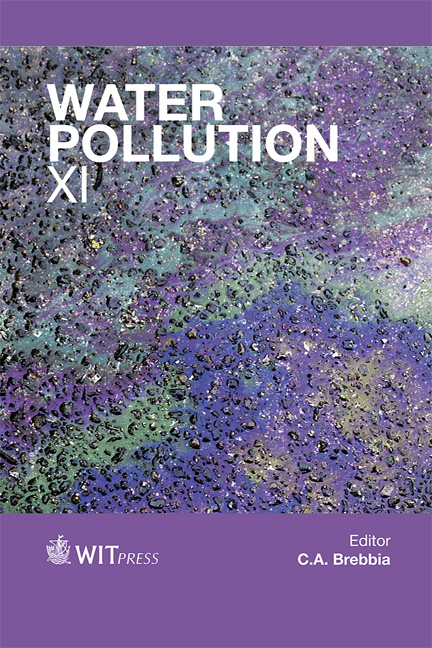Radioactivity Of Estonian Groundwater And Technology For Its Removal
Price
Free (open access)
Transaction
Volume
164
Pages
11
Page Range
211 - 221
Published
2012
Size
421 kb
Paper DOI
10.2495/WP120181
Copyright
WIT Press
Author(s)
L. Lumiste, R. Munter, J. Sutt, T. Kivimäe & T. Eensalu
Abstract
The purpose of this work has been to elaborate a cost-effective and relatively simple technology for groundwater simultaneous purification from iron, manganese, sulfides, ammonia, and some radionuclides (Rn222, Ra226, Ra228). A pilot plant consisting of the Venturi-type aeration unit GDT (Gas-Degas Technology, Mazzei Corp. USA), an oxidation tank and two-stage filtration columns was constructed. Different non-catalytic (Everzit Special Plus, sand etc.) and catalytic filter materials (Filtrasorb FMH, Pyrolox etc.) as well as zeolites were tested. It was found that intensive aeration of groundwater, followed by oxidation with certain contact time, and appropriate selection of filter materials of different properties, enable removal of radium isotopes together with iron and manganese. Total effectiveness of the process was 90% removal of gross-alfa and 70–75% removal of gross-beta activity of groundwater. The total average effective dose was calculated by residual Ra226 and Ra228, and was about 0.07 mSv/yr, which meets the EU DWD requirement (0.1 mSv/yr). On the basis of the results of the pilot plant studies, a full scale plant (2500 m3/d) of Viimsi Water Ltd. was designed by the SWECO Project. The plant will be put into operation in January 2012. Keywords: groundwater, iron, manganese, radium isotopes, aeration, filtration, adsorption.
Keywords
groundwater, iron, manganese, radium isotopes, aeration, filtration, adsorption





